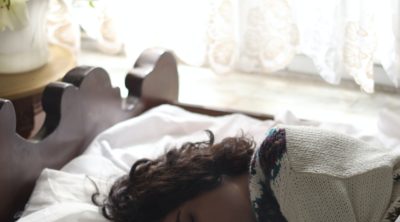Some sleep disorders can cause us to wake up multiple times a night while others may make it so we can’t fall asleep at all. Others, like Sleep Apnea, can cause health issues and may require medical intervention. Frequently having a hard time falling asleep or staying asleep can be debilitating and frustrating. Good sleep is essential for optimal health so recognizing a sleep disorder is an essential first step to a good night’s sleep.
Sleep Apnea
Sleep Apnea can range from simple snoring to serious effects like your breathing pausing and stopping in your sleep. Over 18 million Americans are diagnosed with sleep apnea, and it is most common in men. Obesity, overbites, a large neck, smoking, and alcohol can put you at a higher risk for sleep apnea. Telling symptoms include chronic snoring, restlessness at night, and waking up breathless or gasping for air. If you think that you might suffer from sleep apnea, visit a doctor for treatment. The common treatment uses a ventilation machine, called a CPAP. Untreated Sleep Apnea can cause serious health issues, including death, so seek treatment right away if you suspect that you are suffering from this sleep disorder. If wearing a mask to bed is not for you, there are other options. Positional therapy (changing the position you sleep) surgery and oral appliances may also be of help for those who suffer from Sleep Apnea. Ask your doctor about alternatives.
Insomnia
Insomnia is more common than you might think! One in four people develops insomnia each year. Of those, 75% seek treatment and recover from their temporary sleep disorder while the remaining 25% suffer through their days and nights. Insomnia is most prevalent in women and is the most common sleep disorder in the United States. You might be a victim of insomnia if you have trouble falling asleep, staying asleep, and returning to sleep. If you suffer from insomnia, avoid caffeine before bedtime, avoid the use of screens up to two hours before lying down, and try to use melatonin as a natural supplement. Sometimes insomnia can be self-treated, but if that’s not the case for you, consult a doctor as insomnia can lead to worse medical conditions if left untreated. Treatment often includes medication to help you fall asleep and stay asleep and hypnosis has also been proven effective in some cases.
Sleep Paralysis
Sleep Paralysis affects nearly 3 million Americans and occurs mostly in people with sleep apnea and narcolepsy (excessive day time sleepiness). Upon waking, one might be aware, but can’t move or speak. One might even hallucinate. Sleep Paralysis is usually self-treatable by improving sleep habits. If you suffer from sleep paralysis, avoid caffeine before bedtime, and make your bed for sleeping and sleeping only.
If you suspect that you suffer from any of these disorders, you should consult a doctor for treatment options. Often treatment is simple and can vary from medications to therapy or a combination of both. Getting good sleep will greatly improve your day to day life and health.


